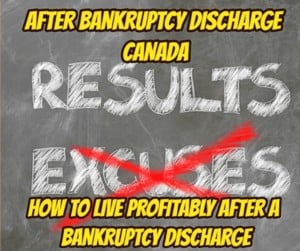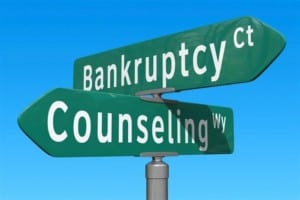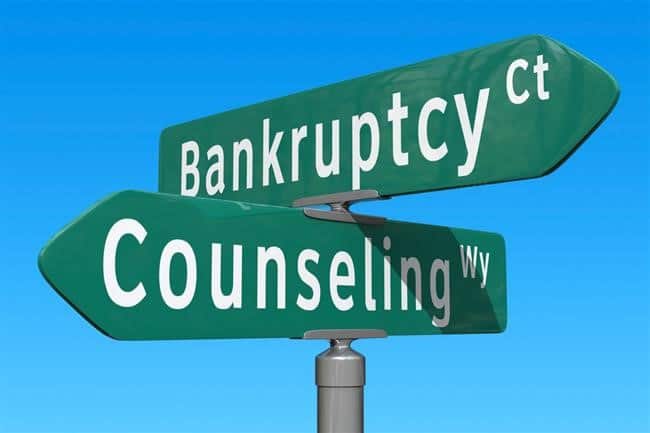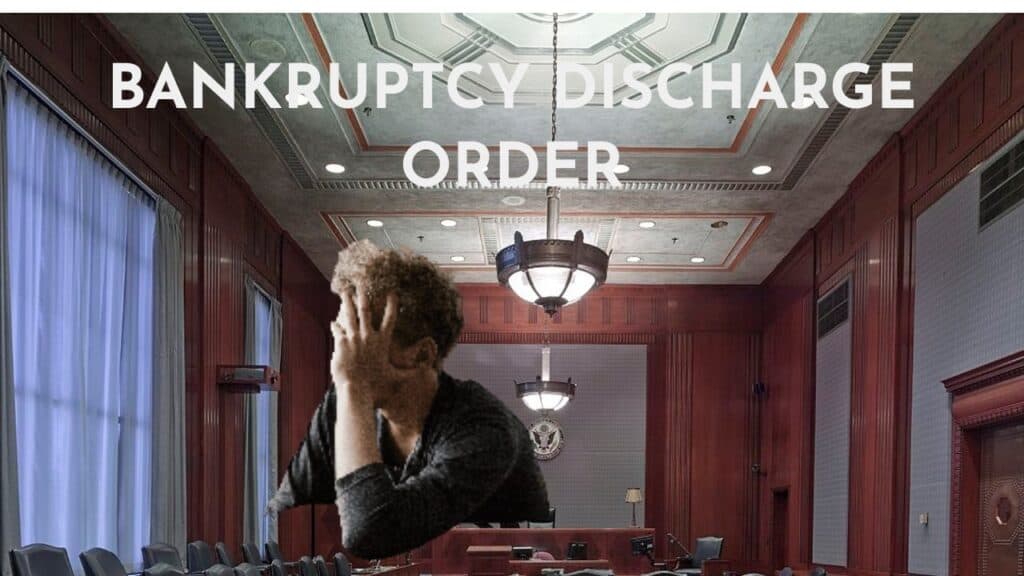 We hope that you and your family are safe, healthy and secure during this COVID-19 pandemic.
We hope that you and your family are safe, healthy and secure during this COVID-19 pandemic.
Ira Smith Trustee & Receiver Inc. is absolutely operational and Ira, in addition to Brandon Smith, is readily available for a telephone consultation or video meeting.
If you would prefer to listen to the audio version of this Brandon Blog, please scroll to the very bottom and click play on the podcast.
What does bankruptcy discharge mean in Canada?
A bankruptcy filing is a form of insolvency process under Canadian bankruptcy law available to individuals and businesses. Bankruptcy deals with a person’s or company’s debt load and assets. After performing a detailed initial assessment, the licensed insolvency trustee will be in a position to advise the debtor if they will be better serviced through a restructuring process as an alternative to bankruptcy (consumer proposal or Division I Proposal for individuals, Division I Proposal or Companies’ Creditors Arrangement Act bankruptcy protection for companies) with creditors, or whether the debtor will be better served filing for bankruptcy.
The final piece of any bankruptcy process for an individual is the bankruptcy discharge. Individuals who go bankrupt are entitled to a discharge from bankruptcy. Companies are only entitled to one if every bankruptcy claim filed is paid in full, with interest. Because this never happens, companies do not receive a bankruptcy discharge. It is not impossible, but for this reason, it really does not happen.
If you are thinking about filing an assignment in bankruptcy, then you may be wondering about the bankruptcy discharge process and how it will affect you. Many people think their debts are eliminated at the moment of their bankruptcy filing.
This is incorrect. It is the bankruptcy discharge that will remove all (with certain limited exceptions) of your unsecured debts from your life and will result in letting you move forward with a clean slate. In this Brandon Blog, I discuss the bankruptcy discharge process and a recent decision of the Supreme Court of British Columbia hearing an appeal to the decision of the Master sitting as bankruptcy registrar on a bankrupt’s application for discharge.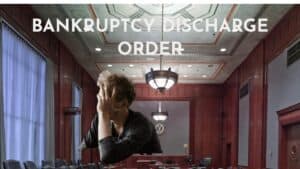
Bankruptcy discharge and its consequences for the bankrupt
When you are granted a bankruptcy discharge, this means that those debts caught by your bankruptcy are no longer your responsibility. This means that every action from creditors or the collection agencies they have retained stops trying to collect the debt obligations.
As I previously mentioned, most almost all debts are wiped off your slate when you receive your discharge from bankruptcy. The kinds of debts that remain even after a bankruptcy discharge are:
- spousal or child support payments;
- fines or penalties mandated by the court;
- claims arising from fraud or fraudulent breach of trust;
- student loan debt if less than 7 years have passed since the bankrupt stopped being a part-time or full-time student.
- any kind of financial debts that are secured against your assets, such as a home mortgage or automobile financing, are not discharged as a result of your bankruptcy discharge.
These sorts of financial debts endure after bankruptcy as they are not released. The individual will be required to continue paying those financial obligations according to their terms. All various other financial obligations are discharged and do not have to be paid.
What are the types of bankruptcy discharge?
If there is no Trustee opposition or creditor opposition to a bankrupt’s application for discharge, and the bankrupt has fulfilled all of their duties of a bankrupt, in most situations, the licensed insolvency trustee can issue an automatic discharge which provides the bankrupt with an absolute discharge from bankruptcy.
If there is an opposition or the bankrupt meets one of the criteria that does not allow for an automatic discharge (such as the bankruptcy process finding the bankrupt a high income tax debt situation), there must be a discharge hearing in court which is heard by a Master of the court sitting as the registrar in bankruptcy. There are 4 types of bankruptcy discharge and a 5th bankruptcy outcome is also possible. They are:
- absolute – an absolute discharge means the bankrupt is entitled to an immediate discharge. This can be given by the licensed insolvency trustee in the bankruptcy estate handling the bankruptcy administration if the bankrupt has fulfilled all of their duties and there is no trustee or creditor opposition;
- conditional discharge – can get a discharge after meeting one or more conditions. The most common type of condition of discharge involves paying a sum of money to the licensed insolvency trustee;
- suspended – the bankrupt’s discharge will take place at a later date and may very well be combined with either an absolute bankruptcy discharge or conditional bankruptcy discharge;
- refused– the court refused to grant a bankruptcy discharge probably because the bankrupt has failed to provide full disclosure or perform other bankruptcy duties; or
- “no order”– the Trustee advises the court that regardless of the time period that has passed, the bankrupt has actually not satisfied every one of his or her obligations and the bankrupt has actually failed to reply to the Trustee’s demands for information. In this situation, when the “no order” order is provided, the licensed insolvency trustee is at liberty to seek its discharge. Once the bankrupt person has actually fulfilled the requirements set by the court, the bankrupt can re-apply for a discharge hearing by the court.

Bankruptcy is a roughly 9-month legal process to eliminate debt
For a first-time bankrupt with no surplus income who fulfills of their duties, including attending the 2 mandatory credit counselling sessions, they are entitled to their bankruptcy discharge after a bankruptcy period of 9 months from the date of bankruptcy.
If this is your second bankruptcy a discharge will not be available after 9 months. A 2nd bankruptcy lasts for a minimum of 24 months if you do not have any surplus income payments to make to the Trustee. If you have surplus income, a second-time bankrupt must make those monthly payments for 36 months before they are entitled to a bankruptcy discharge.
For a 3rd or subsequent bankruptcy, the timeline is the same as the 2nd time bankrupt. However, it is much more possible that there will certainly be resistance to the discharge by the Trustee or the creditors. The court can also impose whatever conditions it sees fit.
Creditor objects to the decision of the Master on bankrupt’s application for discharge
On July 9, 2021, the decision in Hanlon (Re), 2021 BCSC 1348 in the Supreme Court of British Columbia was released. This was an appeal from an order by the bankruptcy registrar of the Supreme Court of British Columbia dated April 28, 2021 in Hanlon (Re), 2021 BCSC 800, VA B190492. This is an appeal under s. 192(4) of the Bankruptcy and Insolvency Act, R.S.C. 1985, c. B-3 (BIA), from an order of a master of that Court, sitting as a registrar in bankruptcy, granting the bankrupt, Mr. Hanlon, a bankruptcy discharge that was made conditional on his paying $7,500 to the Trustee.
The appellant, Ms. Johnson, is one of Mr. Hanlon’s creditors. She states that the registrar erred in approving the discharge on those terms. If the appeal is allowed, she looks for an order refusing Mr. Hanlon’s application for a discharge, with leave to apply again in two years, or alternatively, giving a discharge conditional on his paying $50,000. The appeal is opposed by both Mr. Hanlon the bankrupt, and the Trustee. The appeal was heard by Judge Milman, Canada’s bankruptcy legislation, the BIA states that a person dissatisfied with an order or decision of a registrar can appeal that decision to a judge of that court who in that capacity is sitting as a bankruptcy judge.
The alleged errors made by the registrar in the making of the order of conditional discharge
Ms. Johnson argued that the registrar made certain errors in granting the conditional bankruptcy discharge order. Ms. Johnson says that in granting the bankruptcy discharge on those terms, the registrar erred as follows:
- in concluding that Mr. Hanlon had complied with the injunction resulting from Ms. Johnson’s original successful litigation against Mr. Hanlon when he had not;
- in falling short to take into account Mr. Hanlon’s refusal to agree with the accuracy of the trial judge; and
- in failing to consider Mr. Hanlon’s real income earning potential.

The standard of review on such an appeal
There is a standard of review on such an appeal from an order of a bankruptcy discharge hearing. S. 192(1) of the BIA gives the bankruptcy registrar the authority to, amongst other things, grant orders of discharge. S. 192(4) of the BIA allows a party dissatisfied with an order or decision of a
registrar may appeal it to a judge.
In granting an order of discharge in the bankruptcy process, the registrar is exercising judicial discretion. If the registrar has acted reasonably, the judge should not set it aside or ignore it. Further, if an appeal from a bankruptcy discharge order is based on alleged errors in findings of fact, the court will not interfere if there is no overriding error in the findings of fact and there is evidence from which the findings of fact could be made. Discretionary decisions may, naturally, be overturned if the registrar has materially misinterpreted the law or made an error in respect of the facts underlying the use of that discretion.
When a registrar’s decision in a bankruptcy discharge hearing imposes conditions, those conditions must be realistic for the bankrupt to perform in a reasonable period of time. Where the amount ordered was unrealistic and the bankrupt’s discharge is conditional on making additional payments, the appeal court did hold that results in an error of law and the appellate judge can either substitute the conditions or refer the matter back to the registrar for reconsideration.
The judge’s decision on the appeal from the registrar’s bankruptcy discharge order
The judge dismissed the appeal finding there were no overriding errors made by the registrar. With respect to the amount of $7,500 ordered as a condition of discharge from bankruptcy, the judge found as follows:
Ms. Johnson says that the registrar did not consider Mr. Hanlon’s untapped earning capacity and instead concentrated practically completely on her arguments of his potential inheritance. She suggests that Mr. Hanlon could be earning more than he is. In her opinion, he could earn more to enable him to make a settlement of $50,000 rather than the $7,500 that was ordered.
Mr. Hanlon’s real historic earnings offered adequate assistance for the registrar’s verdict that he was incapable of paying any more than the $7,500 that she ordered for him, did not have the financial prospects himself to do so and without getting personal loans from family members to help him with that. That was properly decided by the registrar based on the evidence before her.
The judge found that there is no merit in this or any other of the grounds of appeal. He found no error in the registrar’s decision, and having found the discharge condition that she imposed to have been reasonable in the circumstances, he dismissed the appeal.
Bankruptcy discharge summary
I hope that you found this bankruptcy discharge Brandon Blog interesting and that you now have a good appreciation for the process at the end of the administration for a person who files for bankruptcy and the considerations of the court if someone appeals a bankruptcy discharge order. Problems will arise when you are cash-starved and in debt. There are several insolvency processes available to a person or company with too much debt.
If you are concerned because you or your business are dealing with substantial debt challenges, you need debt help and you assume bankruptcy is your only option, call me.
It is not your fault that you remain in this way. You have actually been only shown the old ways to try to deal with financial issues. These old ways do not work anymore.
The Ira Smith Team utilizes new modern-day ways to get you out of your debt difficulties with debt relief options as alternatives to bankruptcy. We can get you the relief you need and so deserve. Our professional advice will create for you a personalized debt-free plan for you or your company during our no-cost initial consultation.
The tension put upon you is big. We know your discomfort factors. We will check out your entire situation and design a new approach that is as unique as you and your problems; financial and emotional. We will take the weight off of your shoulders and blow away the dark cloud hanging over you. We will design a debt settlement strategy for you. We know that we can help you now.
We understand that people and businesses facing financial issues need a realistic lifeline. There is no “one solution fits all” method with the Ira Smith Team. Not everyone has to file bankruptcy in Canada. The majority of our clients never do as we know the alternatives to bankruptcy. We help many people and companies stay clear of filing an assignment in bankruptcy.
That is why we can establish a new restructuring procedure for paying down debt that will be built just for you. It will be as one-of-a-kind as the economic issues and discomfort you are encountering. If any one of these seems familiar to you and you are serious about getting the solution you need to become debt-free, contact the Ira Smith Trustee & Receiver Inc. group today.
Call us now for a no-cost bankruptcy consultation.
We hope that you and your family are safe, healthy and secure during this COVID-19 pandemic.
Ira Smith Trustee & Receiver Inc. is absolutely operational and Ira, in addition to Brandon Smith, is readily available for a telephone consultation or video meeting.


